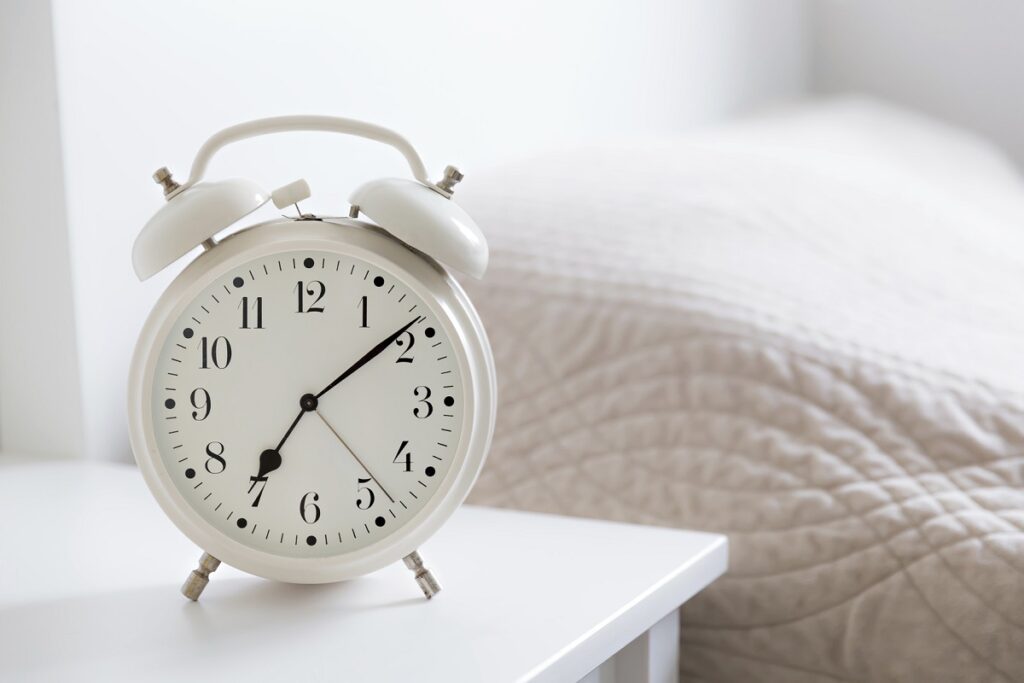Sleep is a ‘hidden threat’ that organisations need to pay attention to if they want to ensure the wellbeing of their staff while also gaining competitive edge.
The research findings are outlined in a new report ‘The Wake-up Call: The importance of sleep in organisational life’.
Based on a survey of over 1,000 professionals at all levels and across sectors, the research explores the impact of sleep on managers’ ability to perform effectively at work as well as its effect on their physical health and social and emotional life.
‘Less sleep than recommended minimums’
The findings show that managers across the board are getting less sleep than the recommended minimum, with the average sleep time coming out at 6 hours 28 minutes. Those aged 50-plus were getting the least amount of sleep, while younger managers (20-34) were getting the most sleep.
Respondents reported that poor sleep was having a real impact on their ability to manage the complex tasks and display the behaviours expected in modern business life.
A problem with focus
Close to three-quarters (69%) said they had trouble staying focused in meetings when tired, with the same number saying it took longer to complete tasks after a poor night’s sleep. A further 65% said they found it harder to work with challenging colleagues when sleep deprived.
65% said they found it harder to work with challenging colleagues when sleep deprived.
It was clear that lack of sleep was also taking its toll on managers’ physical and mental health. All respondents reported lacking energy (86%), irritability (84%), feeling stressed (75%) and struggling with motivation (72%). Other symptoms associated with sleep loss included increased appetite, heartburn and signs of a reduced immune system.
Are we scared of sub-part performance?
The research found that although over-50s get less sleep than younger colleagues, they report that it affects their performance less.
Other symptoms associated with sleep loss included increased appetite, heartburn and signs of a reduced immune system.
It is not clear, however, if this is really the case, or if more senior staff are under-reporting the impact of sleep loss on their own performance because they are more ‘politically-savvy’ and reluctant to admit being under-par.
Sleep as an organisational problem
Sleep has traditionally been considered a personal issue rather than an organisational one. But with lack of quality sleep having such a negative impact on performance, it is fast becoming an issue the corporate world cannot ignore.
The report’s authors suggest that leaders need to challenge the 24/7 ‘always on’, globally-networked and technologically connected culture.
Sleep, they argue, should be integrated into the organisational resilience and wellbeing agenda, with line managers, as well as HR, having a critical role to play in reviewing working policies and practices.
The following practical recommendations will help leaders address the issue of poor sleep among their teams:
- Put sleep on the agenda. Talk about it at all levels of the organisation and share information about the different ways sleep loss can affect people
- Develop a travel policy for employees and ensure it includes provision for sleep as well as recovery days for national or international travel
- Recommend breaks before major meetings where key strategic decisions are being made
- Encourage good work-life balance and healthy lifestyles in employees
- Act as a role model in terms of sleep management
- When arranging development for employees, make provisions for sleep prior to the start of the program
- When employees appear to be struggling with physical, social, emotional or work issues, be mindful of potential symptoms of sleep loss
- Find and share examples of how successful employees at all levels of the organisation have addressed and overcome the impact of sleep loss
- Create flexible ways of working that enable employees to operate at their peak
- Treat each individual differently, as each employee will respond to sleep loss differently, and may or may not seek assistance. Do not assume age, seniority or other factors impact all people the same way
Download our webinar on demand about the importance of sleep for personal and business success.
Sleep is a ‘hidden threat’ that organisations need to pay attention to if they want to ensure the wellbeing of their staff while also gaining competitive edge.
The research findings are outlined in a new report ‘The Wake-up Call: The importance of sleep in organisational life’.
Based on a survey of over 1,000 professionals at all levels and across sectors, the research explores the impact of sleep on managers’ ability to perform effectively at work as well as its effect on their physical health and social and emotional life.
‘Less sleep than recommended minimums’
The findings show that managers across the board are getting less sleep than the recommended minimum, with the average sleep time coming out at 6 hours 28 minutes. Those aged 50-plus were getting the least amount of sleep, while younger managers (20-34) were getting the most sleep.
Respondents reported that poor sleep was having a real impact on their ability to manage the complex tasks and display the behaviours expected in modern business life.
A problem with focus
Close to three-quarters (69%) said they had trouble staying focused in meetings when tired, with the same number saying it took longer to complete tasks after a poor night’s sleep. A further 65% said they found it harder to work with challenging colleagues when sleep deprived.
65% said they found it harder to work with challenging colleagues when sleep deprived.
It was clear that lack of sleep was also taking its toll on managers’ physical and mental health. All respondents reported lacking energy (86%), irritability (84%), feeling stressed (75%) and struggling with motivation (72%). Other symptoms associated with sleep loss included increased appetite, heartburn and signs of a reduced immune system.
Are we scared of sub-part performance?
The research found that although over-50s get less sleep than younger colleagues, they report that it affects their performance less.
Other symptoms associated with sleep loss included increased appetite, heartburn and signs of a reduced immune system.
It is not clear, however, if this is really the case, or if more senior staff are under-reporting the impact of sleep loss on their own performance because they are more ‘politically-savvy’ and reluctant to admit being under-par.
Sleep as an organisational problem
Sleep has traditionally been considered a personal issue rather than an organisational one. But with lack of quality sleep having such a negative impact on performance, it is fast becoming an issue the corporate world cannot ignore.
The report’s authors suggest that leaders need to challenge the 24/7 ‘always on’, globally-networked and technologically connected culture.
Sleep, they argue, should be integrated into the organisational resilience and wellbeing agenda, with line managers, as well as HR, having a critical role to play in reviewing working policies and practices.
The following practical recommendations will help leaders address the issue of poor sleep among their teams:
- Put sleep on the agenda. Talk about it at all levels of the organisation and share information about the different ways sleep loss can affect people
- Develop a travel policy for employees and ensure it includes provision for sleep as well as recovery days for national or international travel
- Recommend breaks before major meetings where key strategic decisions are being made
- Encourage good work-life balance and healthy lifestyles in employees
- Act as a role model in terms of sleep management
- When arranging development for employees, make provisions for sleep prior to the start of the program
- When employees appear to be struggling with physical, social, emotional or work issues, be mindful of potential symptoms of sleep loss
- Find and share examples of how successful employees at all levels of the organisation have addressed and overcome the impact of sleep loss
- Create flexible ways of working that enable employees to operate at their peak
- Treat each individual differently, as each employee will respond to sleep loss differently, and may or may not seek assistance. Do not assume age, seniority or other factors impact all people the same way






One Response
You know what’s worse than
You know what’s worse than sleep deprivation? Irregular sleep.